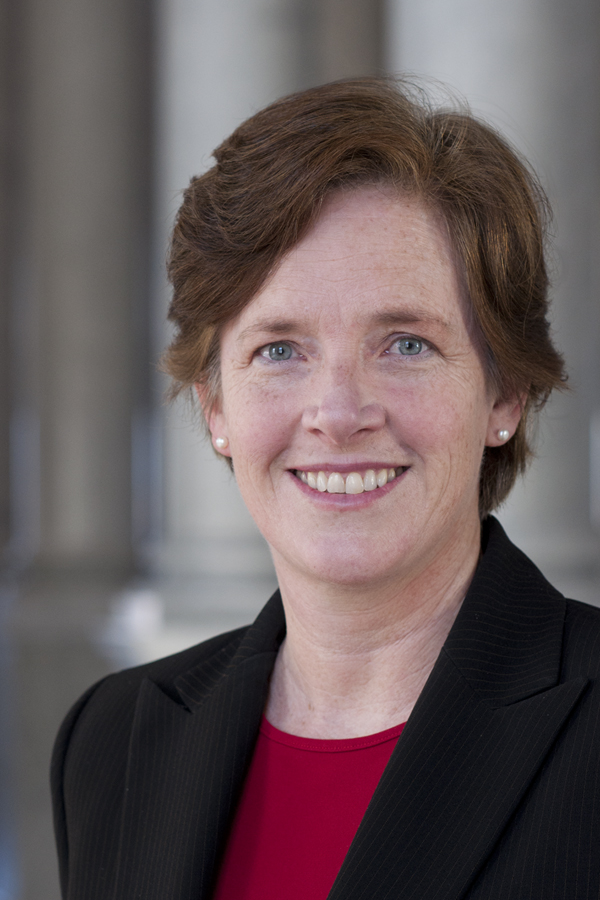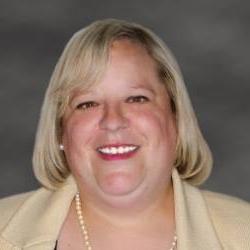With IP champions in Congress turning their attention away from patent reform and toward copyright this year, IPWatchdog took the opportunity to interview Acting U.S. Register of Copyrights Maria Strong shortly after she assumed her new role.

Maria Strong, Acting Register of Copyrights
Congress enacted the first federal Copyright Act in 1790 in accordance with Article 1, section 8 of the United States Constitution, “to promote the progress of science and useful arts, by securing for limited times to authors and inventors the exclusive right to their respective writings and discoveries.”
The Copyright Office started in 1870, and in 1897, Congress created the Copyright Office as a separate department of the Library of Congress. The Register of Copyrights is appointed by the Librarian of Congress and acts under the Librarian’s general direction and supervision.
Maria Strong currently serves as the Acting Register of Copyrights and Director of the U.S. Copyright Office. She was appointed to the position effective January 5, 2020. Strong leads a 400-plus person workforce and is responsible for all administrative functions and duties under Title 17 of the U.S. Code, unless otherwise specified. Strong is on detail from her position as Associate Register of Copyrights and Director of Policy and International Affairs, the office that focuses on domestic and international policy analyses, legislative support, and working with other agencies on IP and trade matters.
With IP champions in Congress turning their attention away from patent reform and toward copyright reform this year, IPWatchdog took the opportunity to interview Strong shortly after she assumed her new role to learn more about the agency’s focus and plans. Senators like Senate Judiciary Committee, IP Subcommittee Chair Thom Tillis (R-NC) are laser-focused on modernization efforts, and Strong made it clear that is a major priority.
What are your immediate goals and objectives?
The way that I see this role is that we are building on the steps and the deep work that the Copyright Office is already doing. I seek to maintain momentum on the Copyright Office’s current workstreams with a focus on law, policy, the registration and recordation processes, as well as Copyright Modernization. Many divisions are very busy at the work related to the Copyright Office-business need aspects of IT Modernization, in addition to their regular duties. I am working to keep the trains running on time, continuing to support the great work that the office is doing and moving forward.
What the key programs and initiatives is the Office pursuing?
Last year, we had four Congressional hearings, with two oversight hearings and two Copyright Modernization hearings. We work to administer the Copyright Act every day, including registration, recordation, administering statutory licenses, and serving as a resource and advisor to Congress, the Executive Branch, and the courts about domestic and international copyright matters.
We are working to improve our technology systems so we can better implement the Copyright Act as part of the modernization. Our fiscal year 2019 budget was the first time we received funding for copyright modernization, which is scheduled to be a five-year effort. IT modernization throughout the Library has been centralized in the Office of the Chief Information Officer (OCIO), and we, as the business, work with OCIO to provide what we need on the copyright business and OCIO provides the IT development.
I want to support our people and processes. For example, we are engaged in modernization-related initiatives on business process re-engineering and organizational change management at the office. We have consultants working on these initiatives which will support our future work with our new systems and provide tools to help us adapt to change. I want to maintain momentum, and we are doing what we can within the budgets and resources that support our confluence of workstreams.
Can you provide an update on the status of the Copyright Modernization effort?
At a hearing before the Senate Judiciary IP subcommittee last December, we provided testimony on our modernization work, both on the IT as well as the business process re-engineering and organizational change management fronts. Recently in the Federal Register we issued a supplemental rule to aid us as we start our recordation modernization pilot. Under this pilot, real people will use our new platform to record certain standard documents. This pilot will go live soon, and we are eager to get feedback and comments. Our recordation process is currently paper-based, and we are excited to move to a digital recordation process.
What rulemaking or requests for comment do you expect in the next year?
It is hard to anticipate all future work, but I do want to mention that we finished our fee study last October and provided Congress with our report, which contained a final proposed schedule of fees. The Register may institute these new fees 120 days after that date, unless Congress passes a law within that time saying it objects to that schedule; this timeline will run out soon. Absent any new law, we expect to issue a final rule soon with our new fees. In addition, we continue to review comments we received on our 2018 notice of inquiry on copyright registration IT modernization and we may follow-up with a further public statement. Separate from modernization activities, we have an open notice relating to statutory references to publication, in the context of works disseminated online, as well as notices related to the creation of additional group registration options. Finally, we may have future rulemakings in connection with the Office’s role in implementing the Music Modernization Act.
How is the Copyright Office using Artificial Intelligence (AI) and Blockchain technologies as part of its work, including the collaborative work with WIPO?
We do collaborate with the World Intellectual Property Organization (WIPO) on certain events, including the “Copyright in the Age of Artificial Intelligence” event which was in early February. In terms of policy, the Copyright Office is part of the U.S. delegation that participates in multilateral meetings with organizations like WIPO to discuss foreign policy. Additionally, we work with WIPO to co-host a biennial event called the International Copyright Institute, where we produce a week-long training for foreign copyright officials, with more than three dozen external speakers and experts participating.
The U.S. Copyright Office has not used AI or Blockchain in our office administration practices. As mentioned above, we have asked for public comments about Blockchain and possible use of apps in our registration modernization comments.
Can you provide an update on the implementation of the Hatch/Goodlatte Music Modernization Act (MMA)?
Throughout 2019 and to-date, we have been, and continue to be, conscientiously engaged in regulatory work as directed by Congress, to ensure an adequate framework as the new Mechanical Licensing Collective prepares to go live next January. In December 2019, we initiated a statutorily-directed policy study by kicking off with a one-day, educational symposium focused on issues related to best practices that the new collective may consider in matching and identifying musical work copyright owners entitled to royalties under the new blanket section 115 mechanical license, and reducing the incidence of unclaimed, accrued royalties. Additionally, we have been very active in both digital and in-person education and outreach efforts to educate songwriters and others affected by the new law, as charged under the statute.
How can stakeholders best engage with you and the Copyright Office?
The Copyright Office has an open-door policy and we do meet with stakeholders. We are happy to meet with you if you contact us and make an appointment.
We want the public to participate in our processes and engage in our rulemakings, requests for comments and dialogues about the processes and programs at the Copyright Office.
We have an email portal for Copyright Modernization comments where we can receive your comments. Additionally, our Office of Public Information receives over 200,000 questions per year on numerous topics and they route all questions to the appropriate offices.
We are focused on outreach efforts to the public, with work on public information and education as well as expanding our social media outreach and engagement. Our staff is presenting at events nationwide, including libraries, industry conferences and universities as well as partnering with the U.S. government’s Stop Fakes program.
We are working on outreach efforts to reach many audiences to inform them about the Music Modernization Act (MMA), and have a dedicated webpage on the MMA and on Copyright Modernization.
Image Source: https://www.copyright.gov/about/leadership/images/strong-full.jpg

![[IPWatchdog Logo]](https://ipwatchdog.com/wp-content/themes/IPWatchdog%20-%202023/assets/images/temp/logo-small@2x.png)

![[Advertisement]](https://ipwatchdog.com/wp-content/uploads/2024/04/Patent-Litigation-Masters-2024-sidebar-early-bird-ends-Apr-21-last-chance-700x500-1.jpg)

![[Advertisement]](https://ipwatchdog.com/wp-content/uploads/2021/12/WEBINAR-336-x-280-px.png)
![[Advertisement]](https://ipwatchdog.com/wp-content/uploads/2021/12/2021-Patent-Practice-on-Demand-recorded-Feb-2021-336-x-280.jpg)
![[Advertisement]](https://ipwatchdog.com/wp-content/uploads/2021/12/Ad-4-The-Invent-Patent-System™.png)







Join the Discussion
No comments yet.